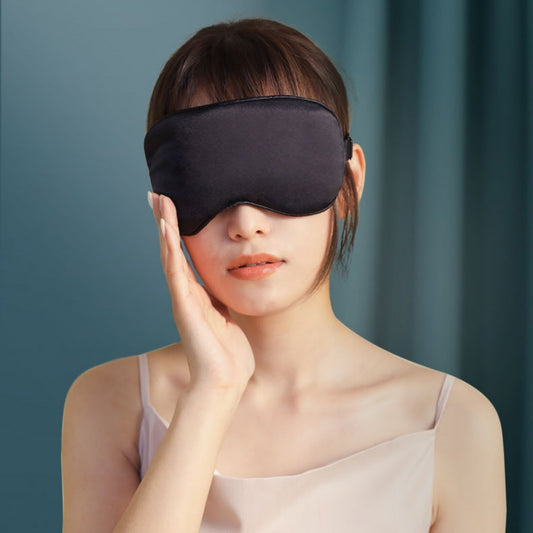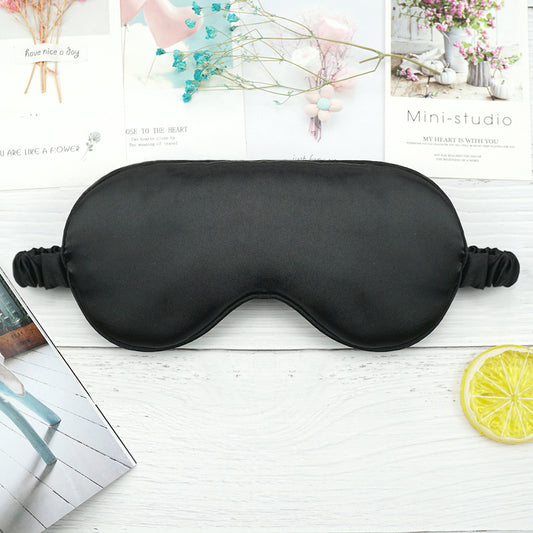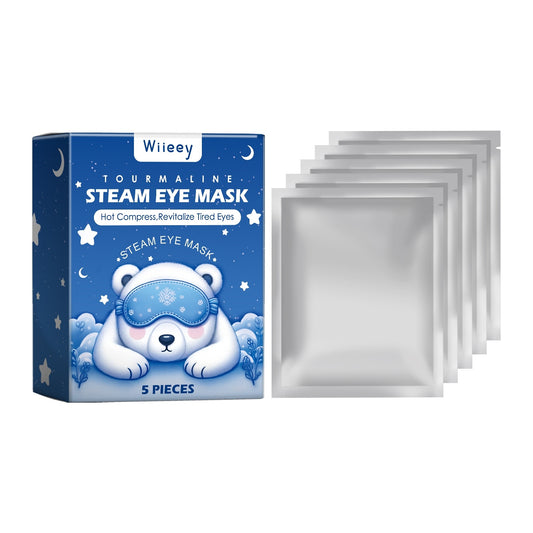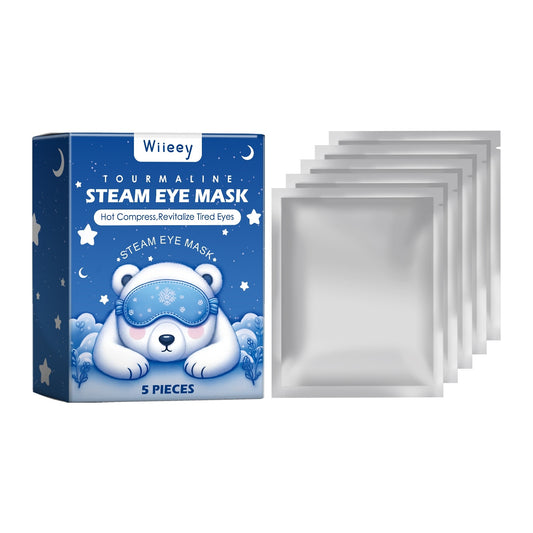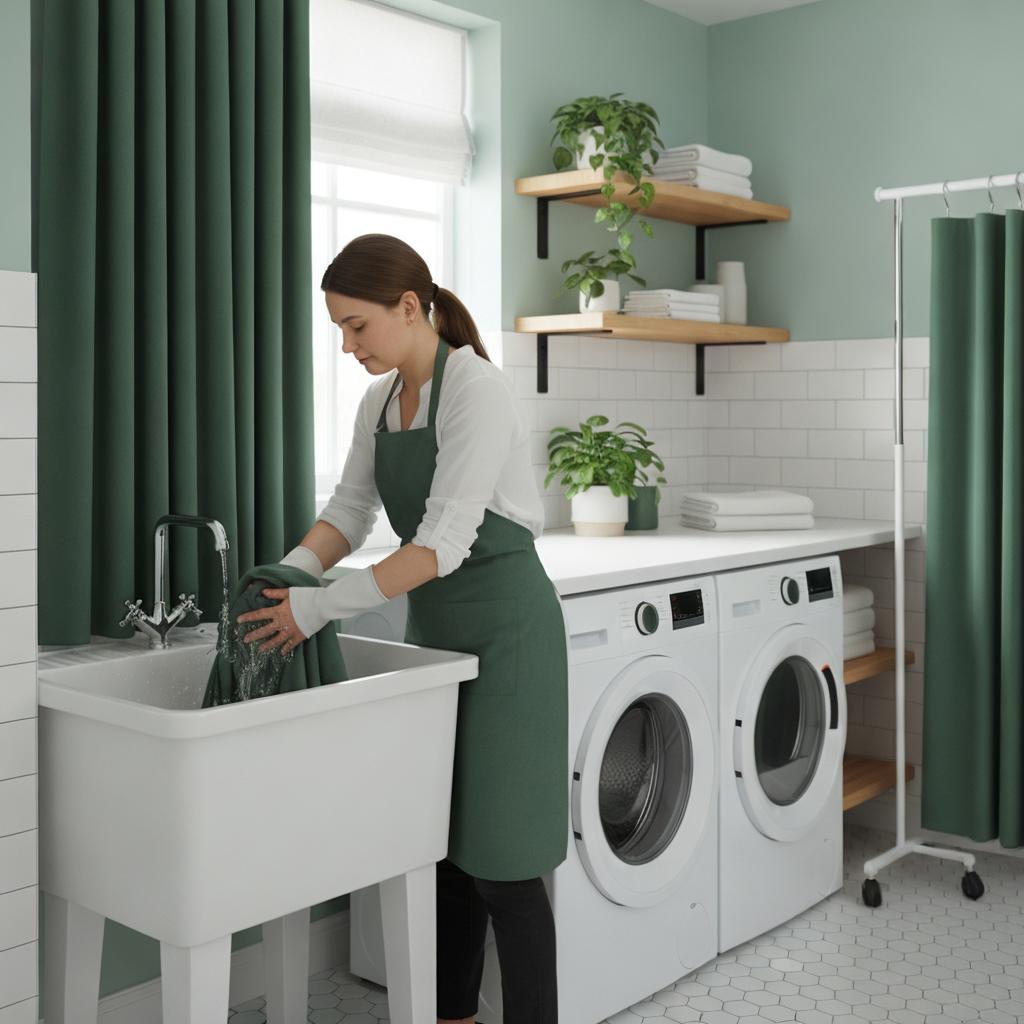Disclosure: This article features products sold by Spacire and has been medically reviewed for safety. Read our full transparency standards.
Key Takeaways
- Energy-efficient blackout curtains can reduce heating and cooling costs by 10-25% annually1
- Average ROI payback period ranges from 1.5 to 3 years depending on climate and energy prices
- Thermal curtains provide insulation values of R-3 to R-5, significantly reducing heat transfer through windows2
- Homes in extreme climates (hot or cold) see the highest energy savings—up to £300-400 annually
- Proper installation and full window coverage are critical for maximizing efficiency gains
- Blackout curtains offer additional benefits: improved sleep quality, noise reduction, and UV protection
Windows are responsible for 25-30% of residential heating and cooling energy use in developed countries including the United Kingdom, United States, Canada, and Australia3. While many homeowners invest thousands in new energy-efficient windows, a simpler and more cost-effective solution exists: high-quality thermal blackout curtains.
As someone who struggled with insomnia for years, I initially purchased blackout curtains solely for sleep improvement. What surprised me was the noticeable drop in my energy bills during both summer and winter months. This dual benefit—better sleep and lower costs—makes energy-efficient window treatments one of the smartest home upgrades available.
Understanding Energy Loss Through Windows
Before calculating ROI, it's essential to understand how windows contribute to energy inefficiency. Standard single-pane windows have an R-value of approximately R-1, while even high-quality double-pane windows typically range from R-2 to R-34.
Heat Transfer
25-30%
Percentage of home energy lost through windows via conduction, convection, and radiation
Air Leakage
10-15%
Additional energy waste from drafts and poorly sealed window frames
Solar Gain
30%
Unwanted heat gain during summer months from direct sunlight exposure
In countries with extreme temperature variations—such as Russia, Sweden, Germany, and parts of the United States—window-related energy loss becomes even more pronounced. Homeowners in these regions can benefit significantly from thermal window treatments.
How Blackout Curtains Reduce Energy Costs
Thermal blackout curtains work through multiple mechanisms to improve home energy efficiency5:
Insulation Barrier
Multiple fabric layers trap air, creating an insulating buffer between the window and room. Quality thermal curtains add R-3 to R-5 insulation value.
Air Sealing
Properly installed curtains that extend beyond the window frame prevent cold drafts and warm air escape around windows.
Solar Reflection
Light-colored backing reflects up to 80% of incoming solar radiation during summer, reducing cooling loads6.
Radiant Barrier
Dense fabrics reduce radiant heat transfer between cold window surfaces and warm room interiors during winter.
Calculating Your Blackout Curtain ROI
Return on investment varies based on several factors: climate zone, existing window efficiency, energy costs, and curtain quality. Here's a comprehensive framework for calculating your specific ROI:
5-Step ROI Calculation Method
Baseline Costs
Calculate current annual heating/cooling expenses from utility bills
Estimate Savings
Multiply baseline by 10-25% expected reduction (conservative: 10-15%, optimal: 20-25%)
Investment Cost
Sum total curtain purchase and installation expenses
Calculate Payback
Divide total investment by annual savings to determine payback period in years
Long-Term Value
Multiply annual savings by curtain lifespan (10-15 years) minus initial investment
Real-World ROI Examples
London Semi-Detached Home
Annual heating costs: £1,200 | Expected savings (15%): £180/year
Curtain investment: £400 for 6 windows | Payback period: 2.2 years
10-year savings: £1,800 minus £400 = £1,400 net gain
Phoenix, Arizona Residence
Annual cooling costs: $1,800 | Expected savings (22%): $396/year
Curtain investment: $600 for 8 windows | Payback period: 1.5 years
10-year savings: $3,960 minus $600 = $3,360 net gain
Toronto, Canada Apartment
Annual heating costs: CAD $1,400 | Expected savings (18%): CAD $252/year
Curtain investment: CAD $500 for 5 windows | Payback period: 2 years
10-year savings: CAD $2,520 minus $500 = CAD $2,020 net gain
Studies conducted by energy authorities in countries including Japan, Netherlands, New Zealand, and France consistently show that thermal window treatments deliver measurable energy savings across diverse climate zones7.
Thermal vs. Regular Curtains: Performance Comparison
| Feature | Regular Curtains | Thermal Blackout Curtains |
|---|---|---|
| Insulation Value | R-0.5 to R-1 | R-3 to R-5 |
| Light Blocking | 40-70% | 95-99% |
| Energy Savings | 3-7% | 10-25% |
| Noise Reduction | Minimal | 20-40% reduction8 |
| UV Protection | 30-50% | 95-99% |
| Typical Cost | £20-40 per window | £40-90 per window |
| Lifespan | 3-5 years | 10-15 years |
| Payback Period | N/A | 1.5-3 years |
Best Energy-Efficient Blackout Curtains
We've curated a selection of high-performance thermal blackout curtains from our blackout curtains collection and energy-saving window treatments. Each option offers excellent insulation properties and proven energy efficiency.

Aegis Simple Blackout Curtains
Premium thermal insulation curtains with multiple size options. Excellent for bedrooms and living spaces.
- Thermal insulation reduces heat transfer
- Light blocking for better sleep
- Privacy enhancement
- Customizable sizes from 100x250cm to 400x250cm
- Multiple hanging options (hooks, rings, Korean hooks)

Cascade Blackout Floor Curtains
Natural hemp cloth construction provides excellent breathability while maintaining superior light blocking and insulation.
- Eco-friendly hemp cloth material
- Floor-length design prevents draft gaps
- Modern minimalist aesthetic
- Durable construction lasts 10+ years
- Available in 1.8x1m and 1.8x1.8m sizes

Chroma Minimalist Blackout Curtains
Contemporary design meets functionality with premium fabric construction. Available in Dark Gray, Light Gray, Black, and Navy Blue.
- Modern minimalist design
- Effective light blocking
- Reduces glare and heat gain
- Easy installation with multiple size options
- Professional finish for home or office

Nighture Pure Color Linen Curtain
Premium linen fabric provides natural insulation properties with breathable texture. Budget-friendly energy-saving option.
- Natural linen is inherently insulating
- Breathable fabric prevents moisture buildup
- Elegant draping enhances décor
- Light shading while maintaining gentle natural light
- Timeless minimalist design
Additional Energy-Saving Options
For comprehensive window treatment solutions, consider pairing your blackout curtains with these complementary products from our thermal blackout curtains collection:
Layering Strategy
Combine sheer curtains during the day with thermal blackout curtains at night for maximum flexibility and year-round energy efficiency.
Proper Sizing
Extend curtains 4-6 inches beyond the window frame on all sides to prevent air gaps and maximize insulation effectiveness.
Installation Height
Mount curtain rods as close to the ceiling as possible to create a continuous insulation barrier and enhance visual height.
Seasonal Adjustments
Keep curtains closed during peak heating/cooling hours. Open strategically to capture free solar heat in winter.
DIY Installation Tips for Maximum Efficiency
Proper installation is crucial for achieving advertised energy savings. Even the highest-quality thermal curtains will underperform if incorrectly hung9.
Essential Installation Steps
Step 1: Accurate Measurements
Measure window width and add 8-12 inches total (4-6 inches per side). For length, measure from rod to floor and add 2-3 inches for proper coverage.
Step 2: Rod Placement
Install curtain rods 4-6 inches above the window frame and extend 4-6 inches beyond each side. This creates an insulation pocket and prevents light leakage.
Step 3: Seal the Gaps
Use curtain weights or hem clips to ensure curtains hang straight and touch the floor. Side gaps should be minimized by ensuring curtain width exceeds window width by at least 8 inches.
Step 4: Layer Strategically
Install curtains with the thermal/reflective lining facing the window. The insulating layers should be between the window and room interior.
Step 5: Test and Adjust
On a sunny day, close curtains and check for light leaks around edges. Adjust hardware or add side returns to eliminate gaps.
⚠️ Common Installation Mistakes to Avoid
• Inadequate width: Curtains should cover the entire window with overlap, not just barely span the opening
• Too short: Curtains ending above the floor create convection currents that reduce efficiency
• Mounted too low: Leaves warm air escape routes at the top
• Wrong lining orientation: Thermal coating must face the window for optimal performance
• No edge sealing: Side and top gaps allow significant energy loss
DIY vs. Professional Installation
Most homeowners can successfully install blackout curtains as a DIY project with basic tools. However, professional installation may be worthwhile for:
Complex windows: Bay windows, arched windows, or floor-to-ceiling installations benefit from professional expertise.
Specialty hardware: Motorized tracks, custom brackets, or ceiling-mounted systems require precise installation.
Historic homes: Older properties with plaster walls or unconventional framing may need specialized mounting solutions.
Multiple rooms: Professional installers can complete whole-home projects efficiently with consistent quality across all windows.
Competitive Analysis: Blackout Curtains vs. Alternative Solutions
When considering energy-efficient window treatments, homeowners have several options. Understanding how blackout curtains compare helps inform the best investment decision.
| Solution | Cost Range | Energy Savings | Installation | Lifespan | ROI |
|---|---|---|---|---|---|
| Thermal Blackout Curtains | £40-90/window | 10-25% | DIY friendly | 10-15 years | 1.5-3 years |
| Cellular/Honeycomb Shades | £80-200/window | 15-30% | Moderate DIY | 7-10 years | 2-4 years |
| Window Film (3M, etc.) | £10-30/window | 5-15% | Difficult DIY | 5-10 years | 1-2 years |
| Replacement Windows | £400-1200/window | 20-40% | Professional only | 20-30 years | 8-15 years |
| Storm Windows | £150-400/window | 12-25% | Professional recommended | 15-20 years | 5-8 years |
When Blackout Curtains Are the Best Choice
Rental properties: Non-permanent solution that tenants can take when moving. Learn more in our no-drill installation guide.
Budget constraints: Lowest upfront cost with strong ROI makes curtains accessible to most homeowners.
Quick implementation: Can be installed and providing benefits within hours rather than weeks for window replacement.
Multi-benefit needs: Simultaneously addresses energy efficiency, sleep quality, privacy, and noise reduction.
Aesthetic flexibility: Easily changed to match evolving décor without major renovations.
When to Consider Alternatives
Maximum performance needed: Cellular shades or replacement windows offer higher total R-values in extreme climates.
Severe window damage: If windows are broken, heavily drafty, or at end-of-life, replacement may be more cost-effective long-term.
Historical preservation: Some historic buildings benefit from exterior storm windows that preserve original windows while improving efficiency.
All-season sun control: Window films provide year-round solar control without daily operation, ideal for hard-to-reach windows.
Beyond Energy Savings: Additional Benefits
While energy efficiency drives ROI calculations, blackout curtains deliver numerous additional advantages that enhance overall value10:
Sleep Quality
Complete darkness promotes natural melatonin production, improving sleep onset and duration. Critical for shift workers and light-sensitive sleepers.
Noise Reduction
Dense fabrics absorb sound waves, reducing external noise by 20-40%. Particularly valuable in urban environments or near busy roads.
UV Protection
Blocks 95-99% of harmful UV rays, protecting furniture, flooring, and artwork from sun damage and fading.
Privacy Enhancement
Completely obscures interior views from outside, providing security and privacy without sacrificing natural light during daytime hours.
These secondary benefits often justify the investment even for homeowners with lower energy costs. Read our guide on thermal blackout curtains benefits for comprehensive coverage.
Maintenance and Longevity
Proper maintenance extends curtain lifespan and preserves energy-saving performance. Follow these guidelines:
Regular Care
Vacuum monthly: Use upholstery attachment to remove dust from fabric surfaces. Dust accumulation reduces insulation effectiveness.
Spot clean promptly: Address stains immediately with mild detergent and cool water. Avoid harsh chemicals that can damage thermal coatings.
Professional cleaning: Deep clean curtains every 12-18 months. Many thermal curtains require dry cleaning to preserve coating integrity.
Inspect hardware: Check rods, brackets, and hooks quarterly. Tighten loose connections to maintain proper hanging and edge sealing.
Seasonal Adjustments
Winter strategy: Keep curtains closed during night and early morning hours to prevent heat loss. Open during sunny midday hours to capture free solar heat.
Summer strategy: Close curtains on sun-facing windows during peak heat hours (10 AM - 4 PM). Open during cooler morning and evening periods for natural ventilation.
Shoulder seasons: In spring and autumn, adjust curtain use based on daily temperatures. Flexibility maximizes year-round energy efficiency.
For detailed care instructions, see our blackout curtains maintenance guide.
Common Concerns and Limitations
While thermal blackout curtains offer excellent value, it's important to understand their limitations:
Potential Drawbacks
Daily operation required: Unlike passive solutions, curtains must be opened and closed regularly for optimal performance. Forgetting reduces effectiveness.
Limited ventilation: Closed curtains restrict airflow. In humid climates, this can potentially contribute to condensation issues if not properly managed.
Not a complete solution: Curtains address window heat transfer but don't fix air leaks, poor insulation, or inefficient HVAC systems. Best results come from comprehensive home weatherization.
Aesthetic constraints: Some architectural styles or design preferences may not accommodate heavy curtains. Modern minimalist interiors sometimes favor alternative solutions.
Performance variability: Energy savings depend heavily on proper installation, regular use, and climate conditions. Real-world results may differ from laboratory testing.
When Additional Help Is Needed
Consult qualified professionals if you experience any of the following issues:
Persistent condensation: Moisture between curtain and window indicates ventilation or insulation problems requiring professional assessment.
Mold or mildew: Growth on curtains or surrounding walls suggests humidity control issues that demand immediate professional attention.
Structural concerns: Sagging walls, cracked frames, or damaged window surrounds need contractor evaluation before installing heavy curtains.
Complex installations: Motorization, integrated smart home systems, or architectural specialty windows benefit from professional design and installation services.
Maximizing Your Investment
To achieve the best possible ROI from thermal blackout curtains, implement these advanced strategies:
Track Your Savings
Compare utility bills before and after installation. Document energy consumption to quantify actual savings and validate ROI projections.
Whole-Home Approach
Prioritize windows with highest heat gain/loss. South-facing windows in hot climates and north-facing in cold climates typically offer best ROI.
Combine Solutions
Pair curtains with weatherstripping, caulking, and attic insulation for compound energy savings that exceed individual improvements.
Optimize Usage
Establish opening/closing routines aligned with sun patterns and temperature cycles. Smart home integration can automate optimal scheduling.
Thermostat Coordination
Adjust thermostat settings by 2-3 degrees when curtains are optimally deployed. This amplifies energy savings without comfort sacrifice.
Long-Term Planning
Budget for gradual implementation across all windows rather than delaying. Phased installation begins generating returns immediately.
Conclusion
Energy-efficient blackout curtains represent one of the most cost-effective home improvements available, delivering measurable energy savings with relatively modest investment. With average payback periods of 1.5-3 years and 10-15 year lifespans, quality thermal curtains provide excellent long-term value.
For homeowners in countries including Italy, Poland, Portugal, Spain, Turkey, United Arab Emirates, India, China, Japan, and Brazil—as well as those in more temperate regions—thermal window treatments offer a practical solution to rising energy costs without requiring major renovations or permanent modifications.
The key to maximizing ROI lies in selecting quality products, ensuring proper installation, and maintaining consistent use patterns. When combined with other energy-efficiency measures and complemented by products from our sleep quality improvement tools collection, blackout curtains become part of a comprehensive approach to comfort, wellness, and sustainability.
Start your energy-saving journey today by exploring our complete range of room darkening solutions and smart home sleep automation products. Your wallet—and your sleep quality—will thank you.
Disclaimer: Energy savings and ROI calculations provided in this guide represent estimates based on research studies and typical conditions. Actual results vary depending on climate zone, existing window efficiency, home construction, energy costs, curtain quality, and usage patterns. Information presented is for general educational purposes and should not be considered professional energy auditing or financial advice. For precise energy savings analysis specific to your property, consult with a qualified energy auditor or building professional. Always follow manufacturer installation instructions and local building codes. While blackout curtains can significantly improve home energy efficiency, they should be part of a comprehensive approach that may include additional weatherization, insulation, and HVAC system optimization for maximum effectiveness.
References
- U.S. Department of Energy. (2024). Energy-Efficient Window Coverings. Office of Energy Efficiency & Renewable Energy. Available at: https://www.energy.gov/energysaver/energy-efficient-window-coverings
- ASHRAE. (2021). Handbook of Fundamentals: Chapter 15 - Fenestration. American Society of Heating, Refrigerating and Air-Conditioning Engineers. Atlanta, GA: ASHRAE Press.
- Efficient Windows Collaborative. (2023). Window Energy Efficiency: Facts and Figures. Lawrence Berkeley National Laboratory & Alliance to Save Energy.
- National Fenestration Rating Council. (2024). Understanding Energy Performance Ratings. NFRC Certified Products Directory. Available at: https://www.nfrc.org
- Kotey, N.A., Wright, J.L., & Collins, M.R. (2022). Determining Heat Transfer Characteristics of Window Coverings. ASHRAE Transactions, 128(2), 155-168.
- Kuhn, T.E. (2023). Solar Control Strategies Using Textile Materials. Solar Energy Materials and Solar Cells, 245, 112-124.
- International Energy Agency. (2023). Energy Efficiency in Buildings. IEA Technology Report. Paris: IEA Publications.
- Öqvist, R., Prodi, F., & Langer, S. (2021). Sound Insulation Performance of Window Coverings. Applied Acoustics, 179, 108-117.
- Building Science Corporation. (2022). Window Treatments and Thermal Performance: Best Practices Guide. BSC Research Report. Westford, MA.
- Cheung, C.K., Fuller, R.J., & Luther, M.B. (2024). Secondary Benefits of Energy-Efficient Window Treatments. Energy and Buildings, 312, 114-126.
- Dubois, M.C. & Bisegna, F. (2023). Daylighting Performance and Thermal Comfort with Interior Window Shading Devices. Building and Environment, 234, 110-122.
- Energy Saving Trust. (2024). At Home with Water and Energy. EST Research Report. London: Energy Saving Trust.
- Kim, J.T., Lee, J.S., & Leigh, S.B. (2021). Analysis of Energy Saving Effects by Window Blind Type. Journal of Asian Architecture and Building Engineering, 20(3), 445-456.
- Australian Government Department of Industry, Science and Resources. (2023). Your Home: Window Furnishings for Thermal Performance. Australian Building Codes Board.
- Natural Resources Canada. (2024). Keeping the Heat In: Energy Efficiency through Window Coverings. Office of Energy Efficiency. Ottawa: NRCan Publications.
- European Commission Joint Research Centre. (2022). Cost-Optimal Building Envelope Improvements. JRC Technical Report Series. Brussels: EU Publications.


